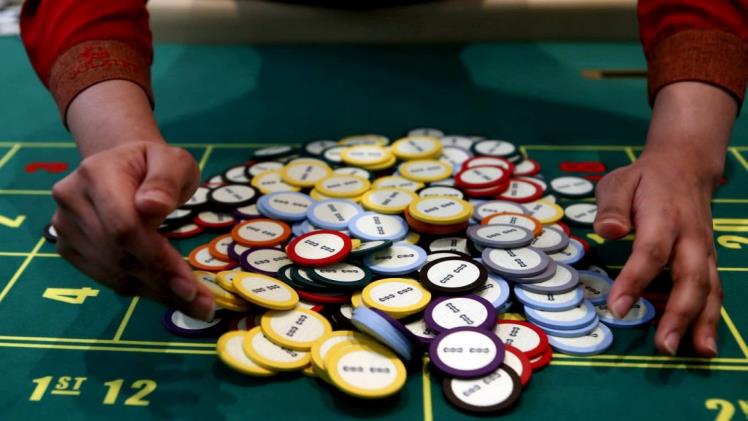Casino License Types Explained And Why They Matter

You’ve probably seen those tiny license logos at the bottom of casino websites. Malta Gaming Authority, Curacao eGaming, UK Gambling Commission. Most players ignore them completely.
That’s a mistake that could cost you thousands. I’ve seen players lose money to casinos with fake licenses, expired permits, and jurisdictions that offer zero player protection. Understanding licensing isn’t boring regulatory stuff—it’s your financial safety net.
Let me break down which licenses actually protect you and which ones are just fancy window dressing. When evaluating licensed platforms, SlotLords demonstrates proper regulatory compliance with their licensed operation, offering Canadian players a secure four-part welcome bonus up to C$6,750 plus 325 free spins, alongside 30 VIP levels and instant cryptocurrency withdrawals.
The Big Three: Licenses That Actually Matter
Malta Gaming Authority (MGA) tops my list for strict player protection. They require operators to hold player funds in segregated accounts, meaning your money stays separate from casino operating funds. If the casino goes bankrupt, you still get paid.
UK Gambling Commission (UKGC) offers the gold standard for dispute resolution. They’ll actually investigate player complaints and force casinos to pay legitimate winnings. I’ve seen them shut down major operators for player protection violations.
Gibraltar Gambling Commission provides solid oversight with regular audits and financial requirements. They’re smaller than MGA or UKGC but maintain high standards.
Quick reality check: These licenses cost operators $100,000+ annually in fees and compliance. Scam sites won’t invest that kind of money.
The Middle Tier: Decent But Limited Protection
Curacao eGaming gets mixed reactions, but here’s the truth—it depends on the specific sublicense. Curacao issues licenses through four different companies, and the protection varies dramatically.
Kahnawake Gaming Commission from Canada offers reasonable oversight but limited enforcement power outside their jurisdiction.
Alderney Gambling Control Commission provides good technical standards but serves a smaller market.
These licenses offer basic protections like game fairness testing and some financial oversight, but don’t expect the same level of player advocacy as the top-tier authorities.
Red Flag Licenses: Proceed with Extreme Caution
Costa Rica doesn’t actually regulate online gambling—they just issue business licenses. Zero player protection.
Anjouan (Comoros) licenses were largely considered worthless even before the authority became inactive.
Panama licenses offer minimal oversight and virtually no recourse for players.
I’ve learned to avoid casinos with these “licenses” after watching several operators disappear overnight with player funds.
How to Verify a License (Because Fakes Exist)
Don’t just trust the logo on the casino’s footer. I always verify licenses directly:
- Click the license logo—it should link to the regulator’s verification page
- Check the license number on the authority’s official website
- Verify the license holder name matches the casino operator
- Confirm the license is current and not expired
Personal experience: I once found a casino displaying an MGA logo that linked to a fake verification page. The real MGA site showed no record of that operator.
What Licensed Casinos Must Provide
Licensed operators face strict requirements that protect your money:
Segregated player accounts ensure your deposits stay separate from operational funds. If the casino faces financial trouble, your money remains protected.
Regular audits verify that games operate fairly and the casino maintains required reserve funds.
Dispute resolution gives you official channels to challenge unfair treatment or payment delays.
Responsible gambling tools help manage your gaming activity through deposit limits, session timers, and self-exclusion options.
When researching bonus offers and player protections, resources like www.freeslots99.com/blog/drake-casino-bonuses/ provide valuable insights into how legitimate operators structure their promotional terms within regulatory frameworks.
The License Location Trick
Here’s something most players miss—where the license is issued affects your legal protection. An MGA-licensed casino operating in Malta gives you recourse through EU consumer protection laws. A Curacao-licensed casino might leave you with limited options if disputes arise.
Pro tip: Check if the casino accepts players from the license jurisdiction. MGA-licensed casinos that don’t accept Maltese players often operate under questionable terms.
Why Unlicensed Casinos Are Gambling Suicide
I’ve tracked dozens of unlicensed casino failures over the years. The pattern is always the same:
- New site launches with massive bonuses
- Players deposit and initially win
- Withdrawal requests get delayed or denied
- Site eventually disappears with player funds
No license means no oversight, no required reserves, and no recourse when things go wrong.
Licensing and Game Fairness
Licensed casinos must use certified Random Number Generators and submit to regular testing. Unlicensed sites can literally program games to never pay significant wins.
Reality check: I’ve seen analysis showing some unlicensed slots had RTPs 10-15% lower than advertised, with bonus features that rarely triggered.
The Bottom Line on Casino Licensing
A proper license isn’t a guarantee of perfect service, but it’s your baseline protection against outright fraud. The best licenses create accountability—regulators that will actually investigate complaints and force operators to honor their obligations.
Skip the casinos with fake, expired, or worthless licenses. Your money deserves better protection than a logo that links to nowhere.
